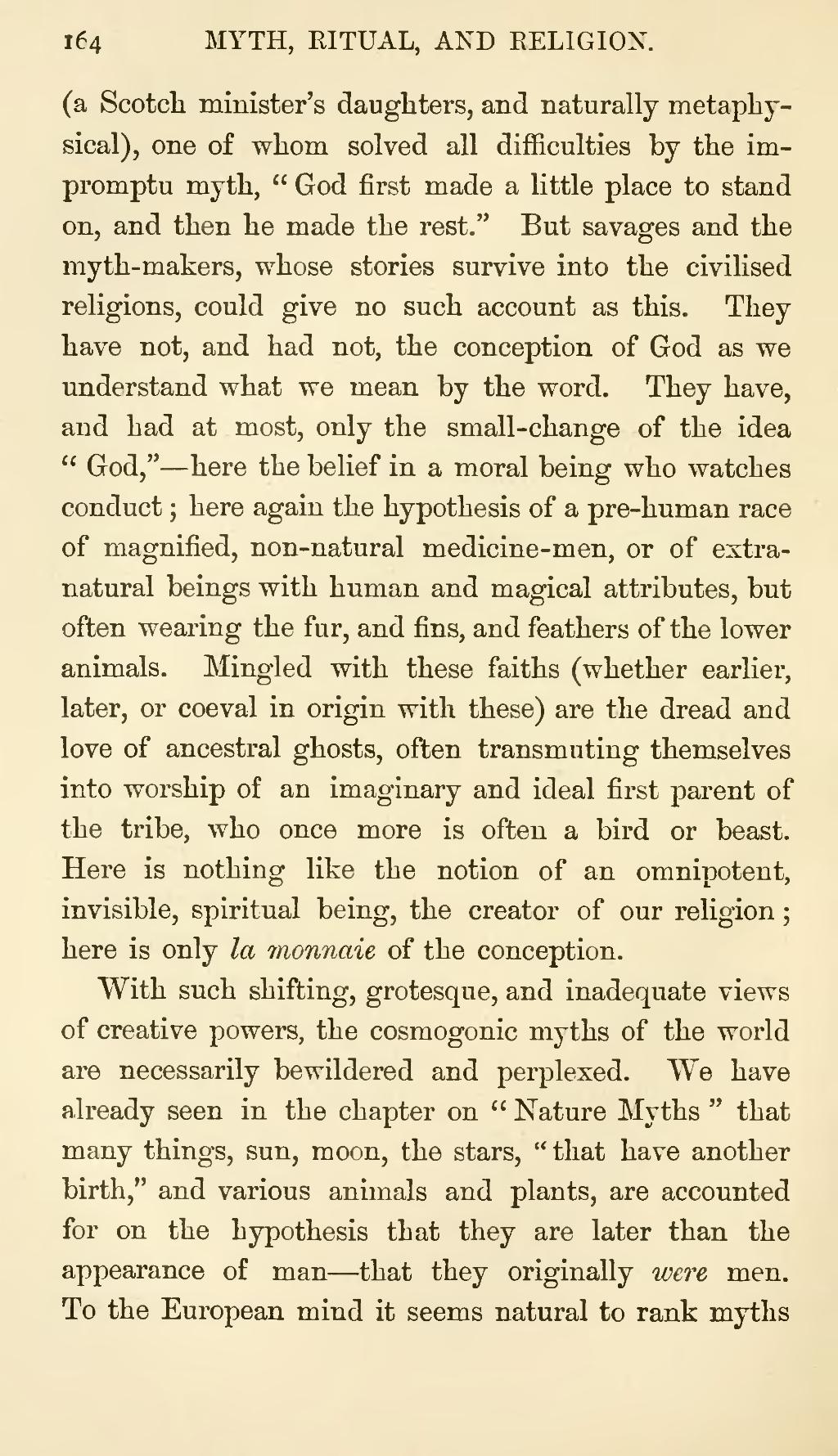(a Scotch minister's daughters, and naturally metaphysical), one of whom solved all difficulties by the impromptu myth, "God first made a little place to stand on, and then he made the rest." But savages and the myth-makers, whose stories survive into the civilised religions, could give no such account as this. They have not, and had not, the conception of God as we understand what we mean by the word. They have, and had at most, only the small-change of the idea "God,"—here the belief in a moral being who watches conduct; here again the hypothesis of a pre-human race of magnified, non-natural medicine-men, or of extra-natural beings with human and magical attributes, but often wearing the fur, and fins, and feathers of the lower animals. Mingled with these faiths (whether earlier, later, or coeval in origin with these) are the dread and love of ancestral ghosts, often transmuting themselves into worship of an imaginary and ideal first parent of the tribe, who once more is often a bird or beast. Here is nothing like the notion of an omnipotent, invisible, spiritual being, the creator of our religion; here is only la monnaie of the conception.
With such shifting, grotesque, and inadequate views of creative powers, the cosmogonic myths of the world are necessarily bewildered and perplexed. We have already seen in the chapter on "Nature Myths" that many things, sun, moon, the stars, "that have another birth," and various animals and plants, are accounted for on the hypothesis that they are later than the appearance of man—that they originally were men. To the European mind it seems natural to rank myths
